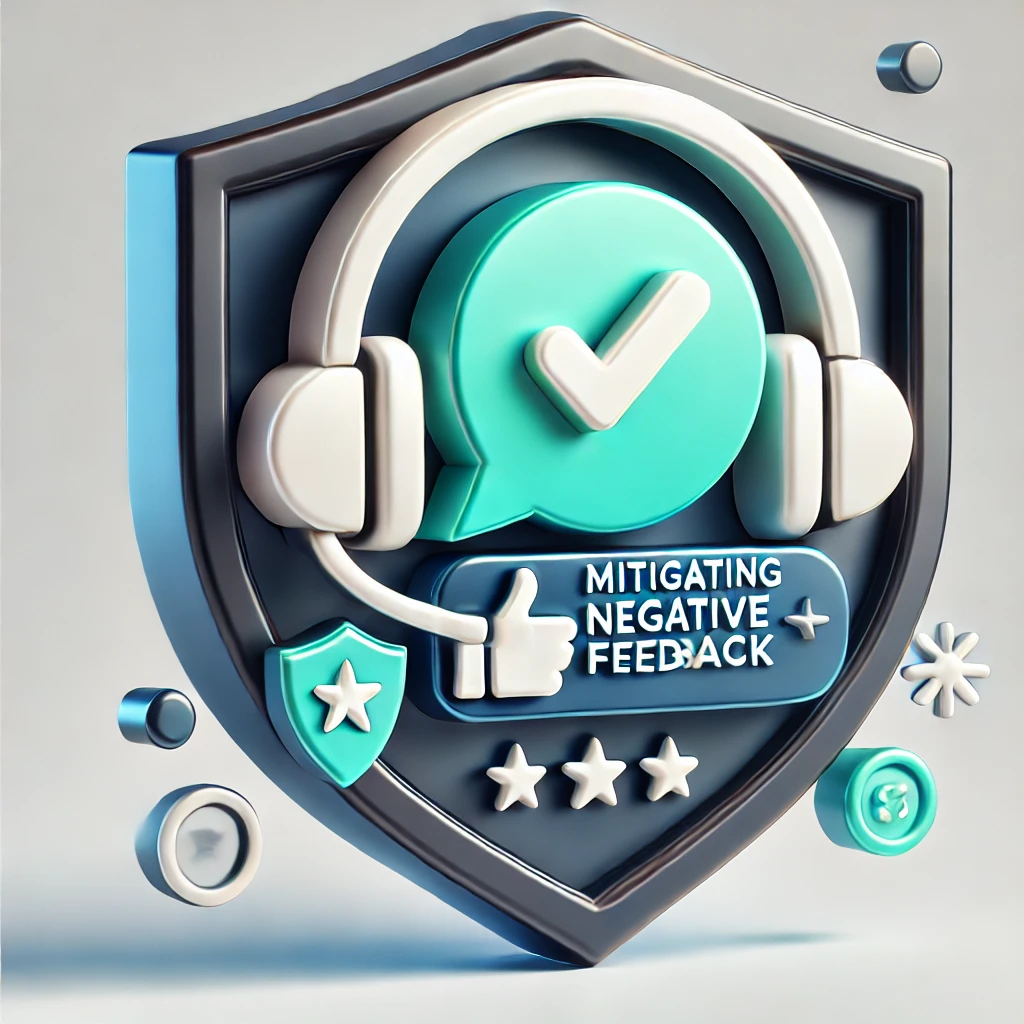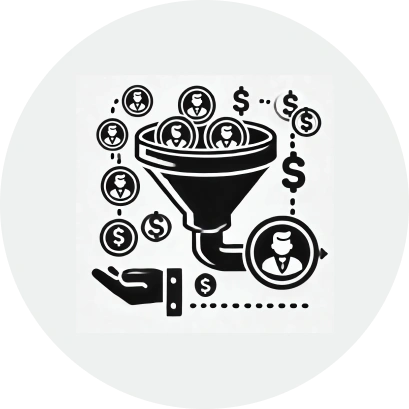In today’s interconnected world, where information spreads rapidly across digital platforms, a
business's reputation is more vulnerable than ever. One bad review, negative comment, or misinterpreted
post can quickly go viral, potentially damaging years of brand-building efforts. This is where Online
Reputation Management (ORM) comes in. ORM involves the strategic practice of shaping public perception
by influencing the online content that people encounter when searching for a business or individual.
From managing customer reviews to creating positive online content, ORM is critical in maintaining
credibility, trust, and customer loyalty. It’s no longer enough to simply provide good products or
services—how people perceive and discuss your business online can significantly impact your success.
What is Online Reputation Management (ORM)?
Online Reputation Management focuses on controlling and improving how your brand is portrayed across
digital platforms. It includes monitoring what is being said about your business, engaging with online
users, and promoting positive content to counterbalance any negative information. ORM strategies
target various platforms, including search engines, review sites, social media, news outlets, and
blogs.
For example, if a prospective customer searches for your brand and sees negative reviews or
complaints, they may decide not to do business with you. However, if your online presence showcases
positive reviews, testimonials, and success stories, this can build trust and encourage them to make a
purchase or contact you for services.
ORM is not just reactive but also proactive. By staying on top of online feedback and creating
favorable content, businesses can minimize the risk of reputation damage and maintain a positive brand
image.
Importance of Online Reputation Management
The influence of online reviews, social media discussions, and digital news articles cannot be
overstated. Studies have shown that over 90% of consumers read online reviews before making a
purchasing decision. Furthermore, 85% of people trust online reviews as much as personal
recommendations. In this landscape, even a single negative review can impact your business's
credibility and lead to lost opportunities.
Below are the key reasons why ORM is vital:

1. Building Trust and Credibility
Positive reviews boost credibility; unanswered negatives create doubt.

2. Influencing Customer Decisions
A strong online presence attracts more customers.

3. Managing Negative Feedback
Addressing complaints promptly prevents PR issues.

4. Enhancing Customer
Satisfaction
Engaging with customers enhances loyalty.

5. Gaining a Competitive Advantage
A good reputation differentiates you from competitors.
Core Aspects of Online Reputation Management
ORM encompasses various activities designed to monitor, maintain, and enhance your online image. Here are the core aspects of a comprehensive ORM strategy:
Continuous monitoring of your online presence is the foundation of ORM. This involves keeping track of brand mentions, customer reviews, social media comments, and news articles. By staying informed, businesses can quickly identify and respond to feedback.
1. Google Alerts: Sends notifications when your brand is mentioned online.
2. Hootsuite: Monitors social media activity across multiple platfor
3. Mention: Provides real-time alerts for brand mentions.
4. Trustpilot: Tracks customer reviews on one of the leading review platforms.


Reviews are a critical part of ORM. Businesses should encourage satisfied customers to leave positive reviews while addressing negative feedback professionally and constructively. Responding to reviews shows that you value customer input and are committed to continuous improvement.
1. Thank customers for positive reviews.
2. Apologize and offer solutions for negative experiences.
3. Avoid arguing or blaming customers in responses.
Social media is a powerful tool for shaping your online reputation. Regularly posting content, engaging with followers, and responding to comments helps build a strong and trustworthy presence. Social platforms also provide an opportunity to share success stories, product updates, and customer testimonials.
1. Create a consistent posting schedule.
2. Respond promptly to messages and comments.
3. Use social media listening tools to track brand sentiment.


SEO plays an important role in ORM by ensuring that positive and relevant content ranks higher in search results. Businesses can optimize their websites, blogs, and other digital assets to push down negative content and increase visibility for favorable material.
1. Publish high-quality blog posts and articles.
2. Optimize content with relevant keywords.
3. Build backlinks from reputable websites.
In the digital age, crises can arise quickly. Negative news, viral complaints, or social media backlash can spread within hours. Having a crisis management plan in place ensures that your business can respond swiftly and effectively to mitigate damage.
1. Acknowledge the issue publicly.
2. Provide clear communication about the steps being taken to resolve the problem.
3. Follow up with stakeholders to rebuild trust.

Tools for Online Reputation Management
Several tools can help businesses monitor and manage their online reputation effectively. These tools provide real-time alerts, performance analytics, and insights into customer sentiment.
Popular ORM Tools:
- Google Alerts: Free tool for tracking brand mentions across the web.
- Hootsuite: Social media management platform with monitoring and scheduling features.
- Mention: Provides alerts for online mentions and tracks sentiment.
- Trustpilot: Specialized in gathering and managing customer reviews.
- SEMrush: Offers SEO and brand monitoring tools to improve search engine visibility.
ORM Strategies
Conduct a thorough audit to identify existing content, reviews, and mentions related to your brand. Understanding your current reputation provides a baseline for improvement.
1. Audit Your Online Presence
Conduct a thorough audit to identify existing content, reviews, and mentions related to your brand. Understanding your current reputation provides a baseline for improvement.
2. Engage With Customers
Actively engage with your audience by responding to both positive and negative feedback. Express gratitude for positive comments and address concerns with empathy and professionalism.
3. Promote Positive Content
Create and share content that highlights your business's achievements, success stories, and customer testimonials. Positive content can help push down unfavorable search results.
4. Address Issues Promptly
Responding quickly to complaints or negative reviews demonstrates accountability and a commitment to customer satisfaction. Publicly resolving issues can turn a potentially damaging situation into an opportunity to showcase excellent service.
5. Track Progress
Regularly analyze performance metrics to measure improvements in sentiment, brand visibility, and customer engagement. Tools like Google Analytics, SEMrush, and social media insights can provide valuable data for tracking progress.
Benefits of Online Reputation Management
Investing in ORM offers numerous benefits for businesses and individuals:
1. Enhanced Brand Credibility and Trust
A positive online reputation builds trust with potential customers. People are more likely to choose a business with high ratings, glowing reviews, and a strong social media presence.
2. Improved Customer Satisfaction and Loyalty
When businesses actively engage with customers and resolve issues promptly, it leads to higher satisfaction and loyalty. Customers appreciate businesses that listen to feedback and continuously strive to improve.
3. Increased Sales and Conversions
Positive online reviews and testimonials can significantly influence purchasing decisions. A strong reputation increases the likelihood that users will convert into paying customers.
4. Competitive Advantage
Businesses with a well-managed online reputation are more likely to stand out in crowded markets. ORM helps build a trustworthy brand image that attracts new customers and retains existing ones. managing reviews, engaging on social media, or optimizing your search engine visibility, a strong ORM strategy helps maintain your competitive edge in today’s digital landscape.
Online Reputation Management : FAQs
ORM involves monitoring and improving how your business is perceived online, addressing reviews, and managing your digital presence.
A positive online reputation builds trust, attracts new customers, and influences buying decisions.
We address negative feedback professionally, resolve issues, and ensure a positive brand image is maintained.
Yes, we monitor social media, review websites, forums, and search engines to ensure comprehensive reputation management.
Yes, we optimize your online profiles and content to ensure your brand appears prominently in search results.
The timeline varies based on the extent of the issue, but we work quickly to implement effective strategies.
Absolutely. We help build a strong online presence and encourage positive feedback to prevent future issues.















